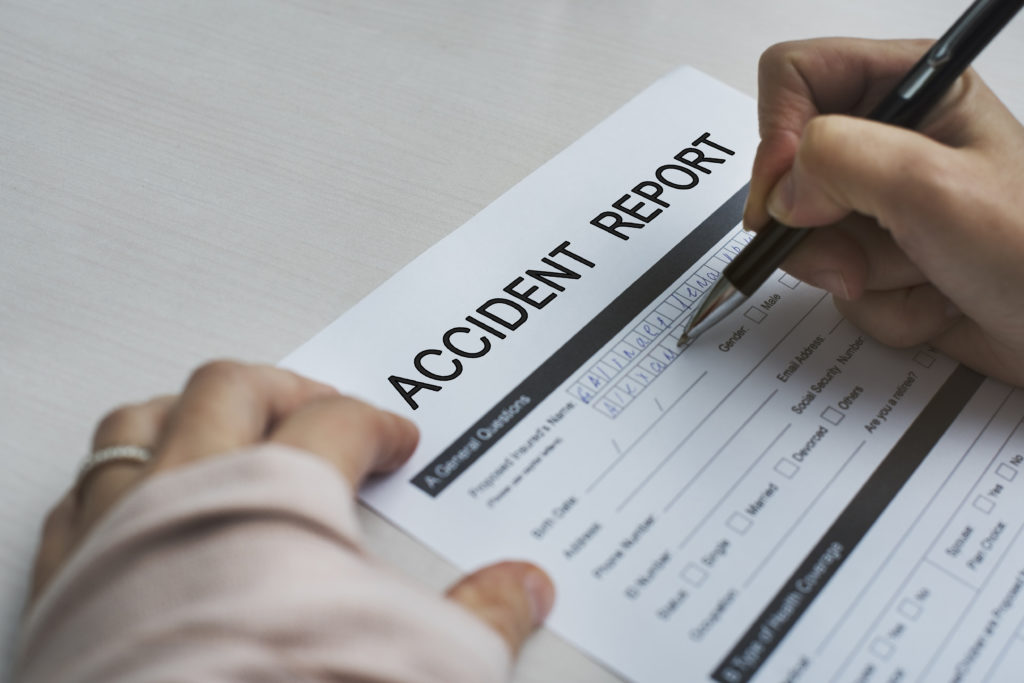Is it a Crime Not to Report an Accident In Canada?


It is a crime not to report an accident in Canada in certain circumstances. Incidents where drivers fail to remain at the scene of the accident are typically referred to as “hit and run” accidents. There are two different categories of “hit and run” accidents under Canadian Law.
Depending upon the situation, the police can either charge the driver under the Criminal Code of Canada for the offence of Fail to Stop at the Scene of an Accident, or under the Highway Traffic Act of Ontario for “Fail to Remain at the Scene of the accident”. Failure to Remain at the scene of an accident under the Highway Traffic Act results in the issuing of a traffic ticket.
It is a Provincial statute offence as it is an offence under the provincial laws of Ontario. Failure to Stop at the Scene of an Accident is a Federal Criminal Code offence, under the Criminal Code of Canada. It is significantly more serious to be charged with failing to stop at the scene of an accident, under the Criminal Code of Canada if you are convicted it is punishable by more serious consequences as well you will end up with a criminal record.
Legal Requirements If You Are Involved in an Accident
Drivers who are involved in a motor vehicle accident in Ontario are required by the Highway Traffic Act of Ontario to do certain things. Firstly, remain at or immediately return to the scene of the accident.
They are also required to render all possible assistance. Upon request, they have to give in writing to anyone sustaining loss or injury or to any police officer or any witness their name, address, driver’s licence, insurance and name and address of the registered owner of the vehicle. Finally, if there is more than one thousand dollars in damage, personal injury, or damage to the highway, the accident must be reported to the police forthwith.
Failure to Stop at the Scene of Accident
Section 252 of the Criminal Code of Canada tackles the offence of failure to stop at the scene of an accident. Every person commits an offence who has the care, charge or control of a vehicle, vessel or aircraft that is involved in an accident with another person, a vehicle, vessel or aircraft, or in the case of a vehicle, cattle in the charge of another person. The person commits an offence if with intent to escape civil or criminal liability fails to stop the vehicle, vessel or, if possible, the aircraft. The person is required to give his or her name and address and, where any person has been injured or appears to require assistance, offer assistance.
Possible Consequences and Penalties
Punishment follows for those who commit such offence. Those not referred to in subsection (1.2) or (1.3), are guilty of an indictable offence and liable to imprisonment for a term not exceeding five years or are guilty of an offence punishable on summary conviction. In situations where the person committing the offence knows that bodily harm has been caused to another person involved in the accident, the person is guilty of an indictable offence and liable to imprisonment for a term not exceeding ten years.
If the person committing the offence knows that the person involved in the accident is dead, or the person knows that bodily harm has been caused to another person involved in the accident and is reckless as to whether the death of the other person results from that bodily harm, and the death of that other person so results, then the person is guilty of an indictable offence and liable to imprisonment for life.
In proceedings under subsection (1), evidence that an accused failed to stop his vehicle, vessel or, where possible, his aircraft, as the case may be, offer assistance where any person has been injured or appears to require assistance and give his name and address is, in the absence of evidence to the contrary, proof of an intent to escape civil or criminal liability.
If you are charged under the Canadian Criminal Code with failure to stop at the scene of an accident, it is a serious criminal offence. For further advice, it’s suggested to contact Pyzer Criminal Lawyers.

Jonathan Pyzer, B.A., L.L.B., is an experienced criminal defence lawyer and distinguished alumnus of McGill University and the University of Western Ontario. As the founder of Pyzer Criminal Lawyers, he brings over two decades of experience to his practice, having successfully represented hundreds of clients facing criminal charges throughout Toronto.




